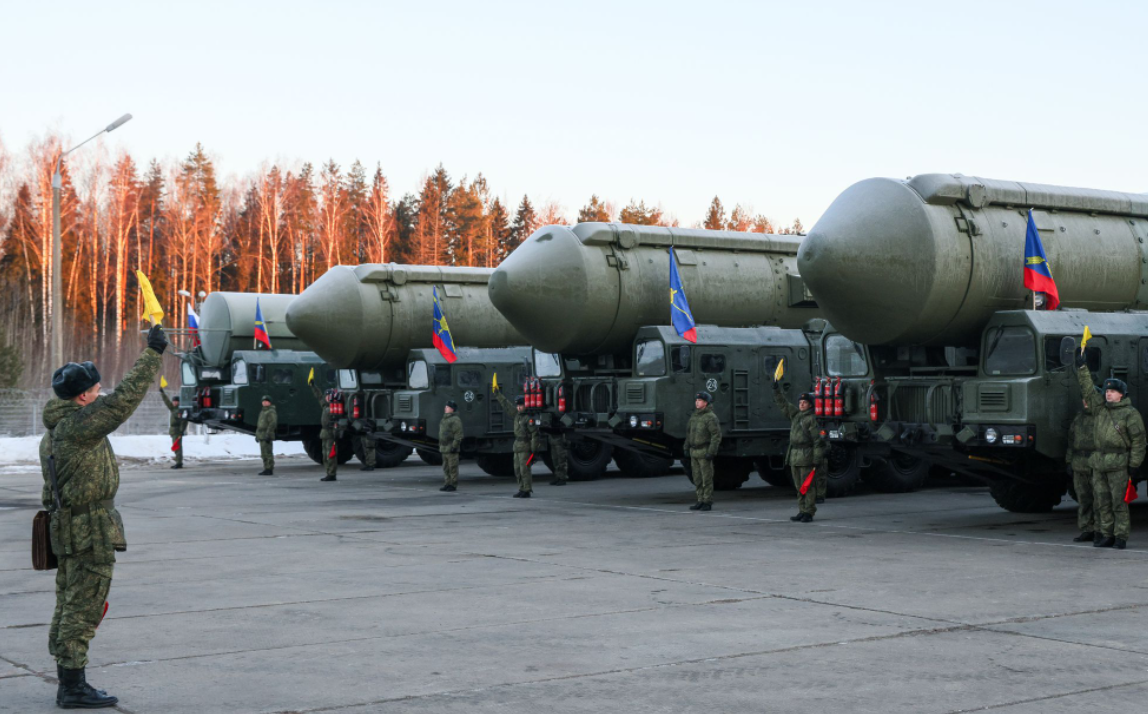After Vladimir Putin has directly or implicitly mentioned the use of nuclear weapons to defend Russia’s security on several occasions without being taken very seriously, some European observers have begun to consider that more attention should be paid to this possibility. But this concern comes mainly from Europe, rather than from the United States, where President Joe Biden keeps repeating that the threat is just Putin’s bluff and should not be given more credibility.
There is a convergence that the likelihood of the use of nuclear weapons is inversely proportional to the probability that it will lead to mutual destruction. Something that would happen if Russia were to start a nuclear attack on an intercontinental scale. Therefore, this scenario is unlikely. The risk increases, of course, as it did in the 1980s; a limited nuclear war (to Europe at that time) was envisaged, but it seems unlikely that a nuclear exchange on a European country would not quickly slide into a global conflict. However, this situation changes radically if the conflict scenario is reduced to the war in Ukraine.
There are two reasons that could favor the use of nuclear weapons by Russia in this war. First, it is not clear that the tactical use of a nuclear weapon on Ukrainian soil will be met with a nuclear response from the West. If Russia decided to destroy a small Ukrainian city by a limited nuclear strike, it is not clear that the West would respond in kind and start an escalation that could lead to global mutual destruction. The problem is that Putin knows that too.
Secondly, all indications are that the Kremlin would be ready for the tactical use of nuclear weapons in case it becomes very clear that Russia could lose the war in Ukraine. Russia’s defeat is unacceptable to Putin because it would mean his political death. Therefore, it is very likely that he would opt for the use of nuclear weapons limited only to Ukraine. As the journalist of the newspaper El País, Enric González, states, “it is too dangerous to corner an atomic power and leave it with no other option than the red button”.
Alluding to the possibility that Western military support for the Ukrainian army might be so high that it would mean a Russian defeat in Donbas’ current battle, Putin mentioned that Russia would respond “forcefully and immediately”. There is a consensus that he was alluding in a veiled way to the tactical use of the atomic weapon.
Thus, the only real alternative to the use of nuclear weapons is for Russia to win a victory in Donbas, or at least an apparent victory, even if in reality it means a stalemate in the war. Unfortunately, such a partial victory will mean a division of Ukrainian territory, leaving the east in the hands of pro-Russian states and the west under the influence of Western powers.
From this perspective, Washington’s discourse that Russia’s nuclear threat is a bluff is irresponsible and seems to be promoting the well-known American Game of Chicken, in which two cars face each other on the highway at high speed to see who will pull away first. Washington powerfully ratchets up the pressure with massive arms shipments to Ukraine to see if it defeats Russia, convinced that Russia will not dare use tactical nuclear weapons, and Moscow threatens to use them in case the arms shipment leads to its defeat in the Donbas. Who will pull away from the crash line first?
In any case, the rest of the world cannot stand idly by and watch the final outcome of this insane race. Among other reasons, it would imply the devaluation of the effort made so far by those regions that have declared themselves free of nuclear weapons, as is the case of Latin America through the Treaty of Tlatelolco. It is necessary to increase efforts to achieve a cease-fire as soon as possible. United Nations efforts to achieve this must be strongly supported by those countries that reject war.
It is difficult to understand why Washington did not accept Kyiv’s request to neutralize Ukrainian airspace for fear of a direct conflagration and is now ready to equip the Ukrainian army to enable it to defeat Russia in the battle for Donbas. Moscow doesn’t care whether it loses the battle in the air or on the ground, it simply finds that option unacceptable. And since Putin knows that it is not clear that the West will respond to the tactical use of the nuclear weapon on Ukrainian soil, it seems that the conditions are in place for that to happen.
Of course, the use of the atomic weapon would not be without drawbacks for the Kremlin. First, tactical use with “small nuclear weapons” would have no less effect than the bombs on Hiroshima and Nagasaki, which would not exactly bring Moscow glory. And relatedly, it would entail acknowledging that it had to resort to the use of nuclear weapons because its conventional military force is much less powerful than it presumed.
Against this background, the only responsible strategy of the West is the so-called double-track strategy. On the one hand, support for Kyiv to prevent the end of the war from leading to the crushing of Ukraine, but at the same time put the effort into achieving a cease-fire as soon as possible. In fact, this was the EU’s option during the first month of the conflict, before it joined the perspective that a military defeat of Russia is possible. However, given that such a horizon is unacceptable to Moscow, the odds have begun to grow that the unthinkable could happen in the Ukrainian war scenario.
Translated from Spanish by Janaína Ruviaro da Silva













